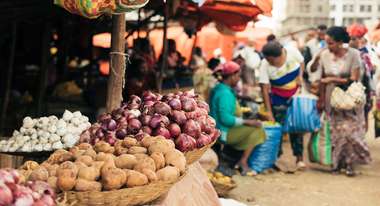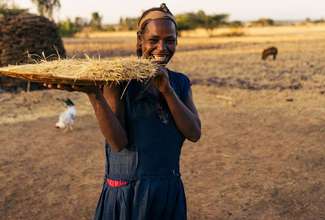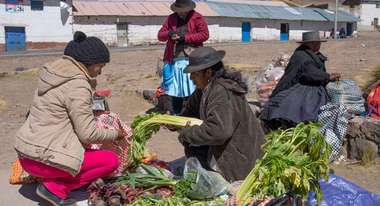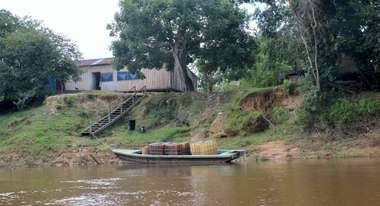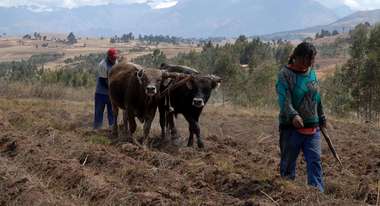Working Towards Sustainable Food Systems in Peru and Bolivia
A systemic approach is essential for generating changes in our food systems.
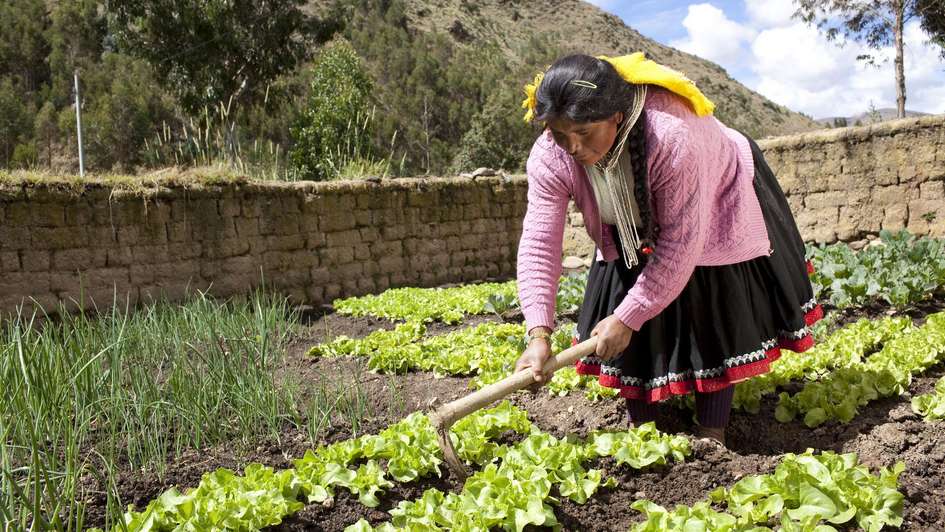
How can we make food systems more sustainable and ensure better access to healthy nutrition for everyone? This question was at the core of Welthungerhilfe's project "Advocacy for the human right to food and promotion of local sustainable food systems".
Together with partner organisations the project was implemented in La Paz, Bolivia and Huánuco, Peru in 2019 and 2021. This meant that most of the activities were carried out during the COVID-19 pandemic and its consequent lockdowns and restrictions in the two countries. Although this affected the planning and implementation, the pandemic also meled to increased awareness of the need to advocate for more local and sustainable food systems to ensure the right to food. As a consequence of the pandemic, the state of hunger in Peru went back to levels of six years previously and the need for short food circuits became more evident.
The project also led to a deeper understanding of the dynamics of the local food systems and the systemic approach both by the Welthungerhilfe office and its partners. We would like to present the most important lessons learned from the project.
Sustainable Food System – Key Points To Consider
- A systemic approach is essential for generating changes in our food systems. This approach must prioritize actions to guarantee the right to food, protect small scale family producers and generate processes that contribute to the conservation and restoration of ecosystems.
- In order to achieve a systems change, greater efforts must be made to work with consumers to generate changes in behavior and culture.
- Agroecology – both as a philosophy and practice – as well as support for small family producers continue to be main pillars in the construction of more sustainable food systems. There is a need to step up advocacy efforts to ensure that public policies are accompanied by financing mechanisms and budgets as well as social protection for small-scale producers. This advocacy must be a joint effort with producer associations, social movements, and civil society organizations.
- More and better data is needed to carry out advocacy and awareness raising. Consumer patterns need to be mapped and analysed. We need to understand the local effects of climate change on small production units. Listen to and understand the needs and demands of producers. Analyze local markets and policies and their links to regional and global markets. This knowledge can be gathered and generated through partnerships with universities and investigative journalism, roundtables multi-stakeholder work, and inclusive processes of creation and innovation.
- Multi-stakeholder processes are important but need to be representative and inclusive, giving a voice also to the producers and poor consumers.
- Ensuring access to food for all and in particular those who are mostly affected by hunger must be at the heart of our work. It is also pivotal to continue strengthening protection mechanisms and more stable income for small-scale producers.
What Is Agroecology?
Agroecology is the “ecology of the food system”. It has the objective of achieving sustainability by maintaining a balance between ecological responsibility, economic viability, and social justice. Learn more in the video.
The Global Food System
Learn more about food systems, what needs to change, and what Welthungerhlfe is doing to work towards a just and sustainable global food system.





